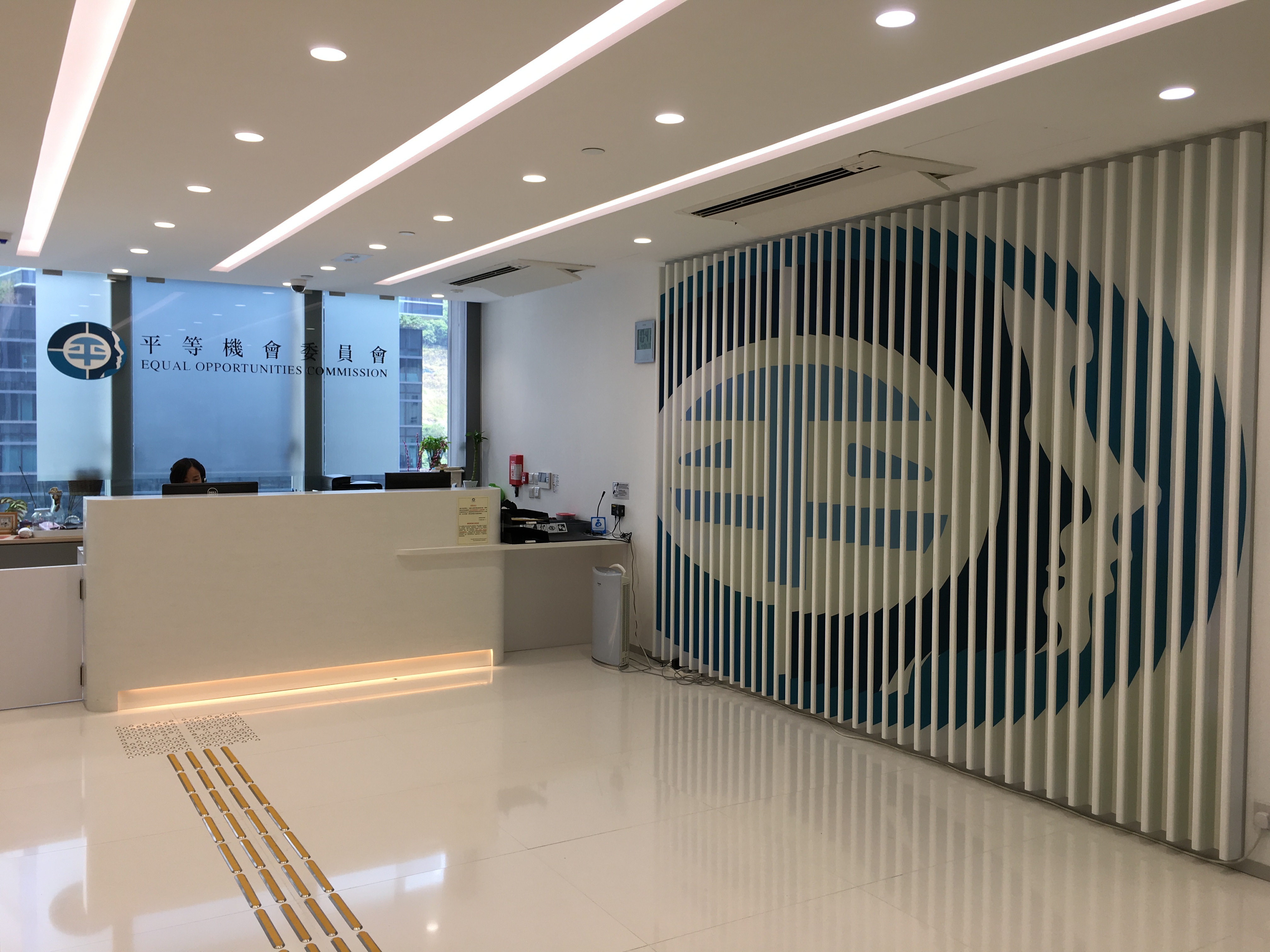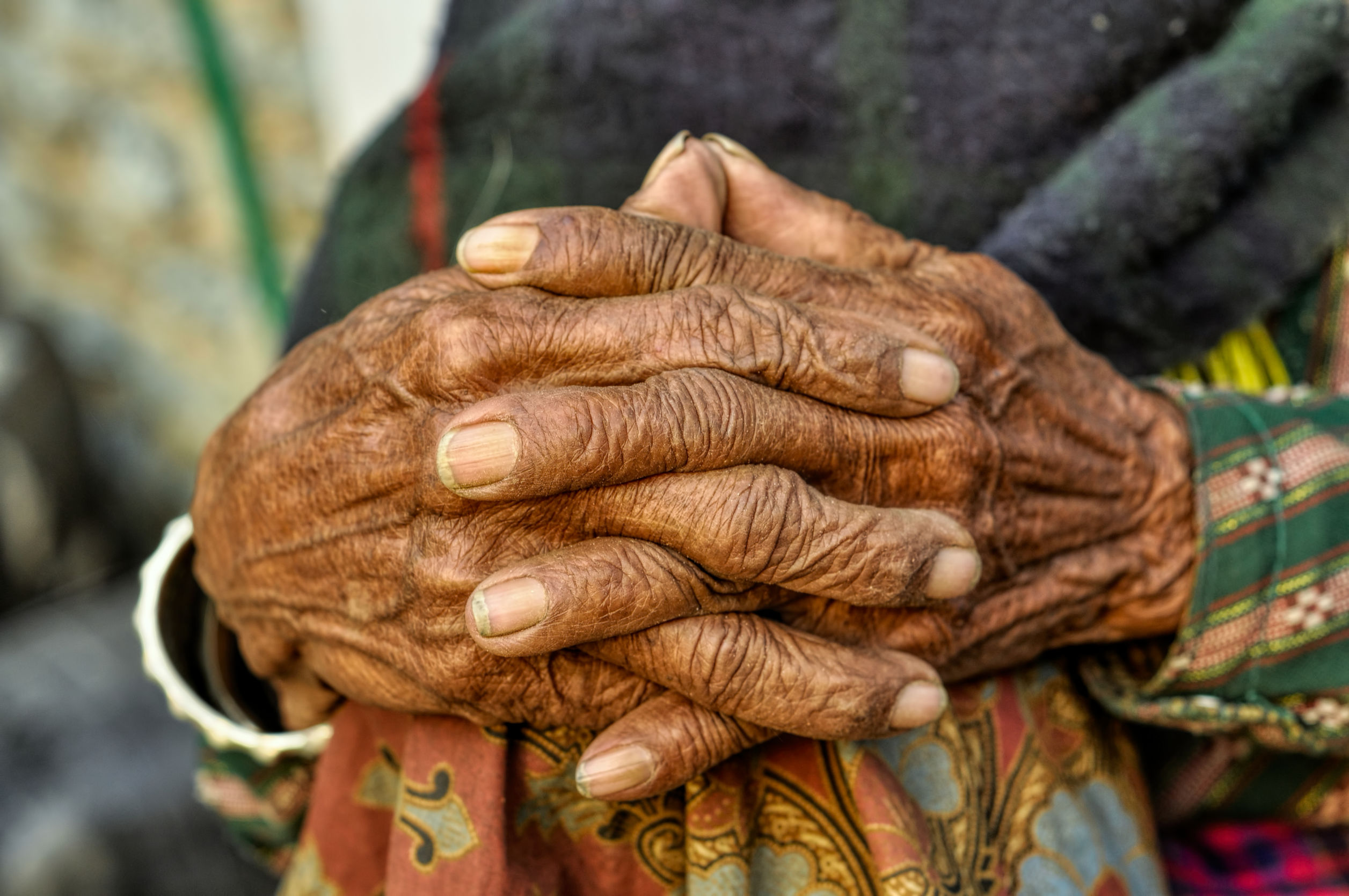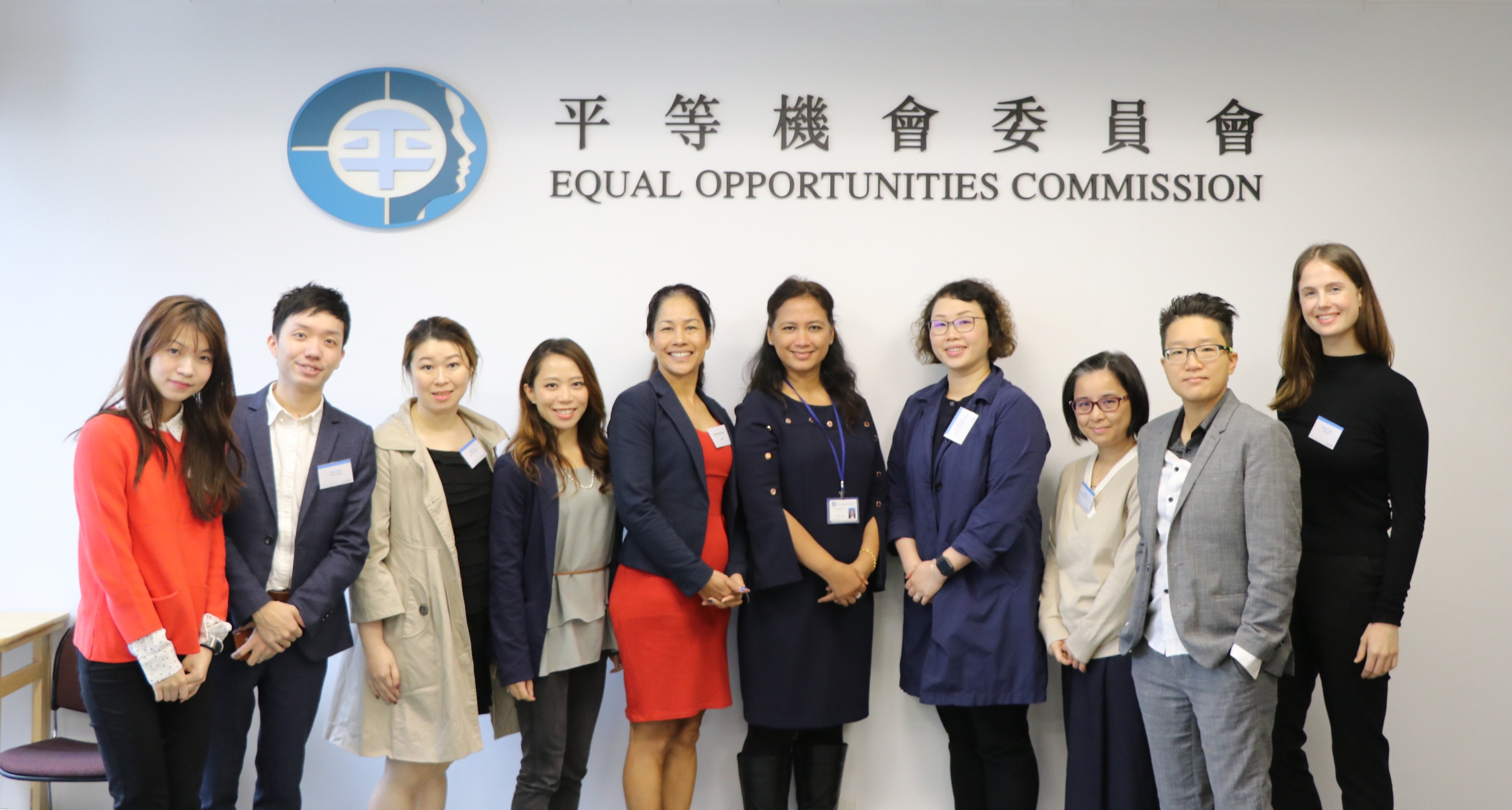|
  | |
Tel: 2511 8211 / Fax: 2511 8142 / SMS: 6972566616538 |
News from the EOC
Issue 198 | 30 November 2018 |
中文版

On the 25th of November every year, the world observes the International Day on the Elimination of Violence Against Women (IDEVAW), sending out a sombering reminder of the abuse and debasement women continue to suffer on a daily basis. According to the United Nations, one in every three women and girls experience physical or sexual violence in their lifetime, most frequently by an intimate partner.
Behind its façade of peace and prosperity, our city is plagued by gender-based violence in more places than we may think. On 24 November 2018, Prof Alfred CHAN Cheung-ming, Chairperson of the EOC, published an article in the
Hong Kong Economic Journal detailing this stark reality: every year, the Social Welfare Department receives approximately 3,000 reports of new cases of violence against spouses; yet, nearly 60% of female victims of domestic violence stay around with their abusive partners as they do not wish to abandon their children. What’s more, a 2014 study by the EOC found out that around 17% of employees in Hong Kong had experienced sexual harassment in the workplace. Women living on the margins of our society – foreign domestic workers and lesbian couples, for instance – find themselves in an even more vulnerable position, as language barriers, social stigma and other factors curtail access to support services.
“To root out violence against women in the longer term, we must help children appreciate the importance of gender equality and bodily automony at an early age,” wrote Prof Chan. “Indeed, sex education in Hong Kong has long come under attack for its biological focus; as the Education Bureau (EDB) prepares to review the local sex education curriculum, the EOC has submitted a comprehensive list of recommendations on the overhaul, such as renaming the subject as ‘sexuality and relationship education’, spelling out its objectives, stipulating dedicated lessons hours, and incorporating themes of LGBTI inclusion into the curriculum. We earnestly hope the Government will give them due consideration and share our commitment to creating an equal and inclusive society free from prejudice and harassment.”
Read Prof Chan’s article (Chinese only)
Read EOC's submission to EDB
Read EOC’s press release on the submission
*********************************************

In response to recent media reports about EOC receiving a “C” status from the Global Alliance of National Human Rights Institutions (GANHRI), EOC Chairperson, Prof Alfred CHAN Cheung-ming published an article in
am730 on 28 November 2018 to further clarify the reasons behind the accreditation, following a statement issued by the EOC on 21 November 2018.
GANHRI’s Sub-Committee on Accreditation (SCA), the body responsible for the status classification, assesses national human rights institutions (NHRIs) in terms of their compliance with the Paris Principles in law and in practice. Adopted in 1993 by the United Nations General Assembly, the Paris Principles consist of six major criteria, namely: a broad mandate, based on universal human rights norms and standards; autonomy from government; independence guaranteed by statute or constitution; pluralism; adequate resources; and adequate powers of investigation.
According to Section 63(7) of the Sex Discrimination Ordinance, the EOC “shall not be regarded as a servant or agent of the Government or as enjoying any status, immunity or privilege of the Government”. In other words, the EOC has autonomy over the management and control of its activities and budget. Notwithstanding so, the EOC is a Government-subvented body, with its Chairperson and Members appointed by the Chief Executive of HKSAR. Contrary to claims made in a number of recent news reports, what form the basis of the GANHRI accreditation are these very structural factors, which are both beyond the control of the Commission and unrelated to its extensive work, from complaint investigation, conciliation and legal assistance to research, training, policy advocacy and public education.
“Let’s not forget that we have, in the past, taken the Government to court to unmask the discriminatory nature of some of its administrative practices. We have also dished out criticism where it’s due – inaccessible public premises, outdated sex education policies, sluggishness in offering legal protection to the LGBTI community, you name it,” said Prof Chan. “While we do believe there is room in the law for a more concrete approach to ensuring the Commission’s independence – a position we made clear as early as in the 2014 Discrimination Law Review, we will continue to serve the local community, combat discrimination, and promote equality with vigor, conviction and professionalism.”
Read the EOC’s media statement
Read Prof Chan’s article (Chinese only)
Check out highlights of EOC’s work in 2017/18
*********************************************

SmartBiz Expo is coming back next week, from 5-7 December 2018 at the Hong Kong Convention and Exhibition Centre. The EOC is once again joining this annual get-together, organised by the Hong Kong Trade Development Council for companies across a range of industries and sectors, including small and medium enterprises (SMEs).
Drop by our booth (No. 1D-B10) to learn more about how the four anti-discrimination ordinances apply to your business, what you can do to create a more inclusive culture in the workplace, and why it can help you retain talents and boost productivity. Some of the EOC’s publications and souvenirs are also available for pick-up on a first-come, first-served basis.
About SmartBiz Expo
Download the EOC’s “Equal Opportunities: Concise Guide for Small and Medium Enterprises”
*********************************************

A pioneering, EOC-funded study on ethnic minority (EM) elders was released on 20 November 2018. Entitled “Acculturation and Needs Assessment of Elderly Ethnic Minorities in Hong Kong: A Qualitative Study”, the research was jointly conducted by the Department of Social Work and Social Administration of the Faculty of Social Sciences, The University of Hong Kong and Hong Kong Christian Service.
Designed to identify the needs of elderly members of our local EM communities, as well as policy and service gaps, the study consisted of in-depth interviews with 30 Nepalis aged 60 or above and five Nepalese carers. Findings indicate a prevalence of chronic illnesses, such as hypertension and diabetes, with a number of respondents showing early signs of cognitive impairment as well. Language barriers, however, have turned the healthcare system into a maze in which they struggle to navigate. There is also a shared lack of knowledge about community centres, the care and support services they provide, and relevant application methods. This is especially unfortunate when the majority of respondents expressed a strong preference towards ageing-in-place and family or community-based care, as opposed to being sent to institutions like elderly homes.
Ethnic minorities have long been an integral part of Hong Kong society. Just like the general populace, they are now feeling the challenge of an ageing community, only more acutely and in greater isolation. Addressing their need for long-term care services isn’t just about stationing intepreters at hospitals; it entails first and foremost genuine respect for EM rights – to access information, goods, services and facilities on an equal basis with others. By incorporating their needs and concerns into the policymaking process, conducting more cultural sensitivity training for caregivers and medical personnel, and devising codes of practice for service providers and frontline staff, we may begin to create the conditions for a dignified life for EM elders in Hong Kong.
Read the press release
Read the executive summary of the study
Read the full report
*********************************************

On 28 November 2018, the EOC hosted a visit by participants of the “Shared Value” programme organised by CSR Asia. Through an interactive idea-jamming session, they were invited to reflect on why diversity matters to both employers and employees, and ways to build an inclusive workplace.
Commissioned by the SIE Fund, the “Shared Value” programme lines up community organisations and offers thematic visits and workshops for representatives from the private sector who are eager to make a difference in society while doing business. Themes include “closing education gaps”, “stress and mental health”, “towards zero-waste lifestyles”, “empowering low-income families” and “building an age-friendly city.”
The EOC is happy to be a partner of the programme, which echoes the Commission’s effort in engaging corporates in the promotion of equality. Back in August this year, the EOC launched the Racial Diversity and Inclusion (RDI) Charter for Employers, consisting of nine guidelines based on the Race Discrimination Ordinance (RDO), as well as the Code of Practice in Employment under the RDO. They serve as best practice suggestions for businesses looking to set and accomplish specific goals relating to racial inclusion. Click the link below for more details.
Find out more about the RDI Charter
About "Shared Value" visits
More on CSR Asia
*********************************************
Visit our website or download the EOC mobile app (Apple App Store / Google Play) to stay updated on the EOC’s work and positions, and to review our press releases and calendar training. Also, stay tuned on other equal opportunities issues and community initiatives by visiting our community resources and community events pages for information from our community partners, including publications, survey reports, publicity campaigns, and upcoming conferences.


 On the 25th of November every year, the world observes the International Day on the Elimination of Violence Against Women (IDEVAW), sending out a sombering reminder of the abuse and debasement women continue to suffer on a daily basis. According to the United Nations, one in every three women and girls experience physical or sexual violence in their lifetime, most frequently by an intimate partner.
On the 25th of November every year, the world observes the International Day on the Elimination of Violence Against Women (IDEVAW), sending out a sombering reminder of the abuse and debasement women continue to suffer on a daily basis. According to the United Nations, one in every three women and girls experience physical or sexual violence in their lifetime, most frequently by an intimate partner. SmartBiz Expo is coming back next week, from 5-7 December 2018 at the Hong Kong Convention and Exhibition Centre. The EOC is once again joining this annual get-together, organised by the Hong Kong Trade Development Council for companies across a range of industries and sectors, including small and medium enterprises (SMEs).
SmartBiz Expo is coming back next week, from 5-7 December 2018 at the Hong Kong Convention and Exhibition Centre. The EOC is once again joining this annual get-together, organised by the Hong Kong Trade Development Council for companies across a range of industries and sectors, including small and medium enterprises (SMEs). A pioneering, EOC-funded study on ethnic minority (EM) elders was released on 20 November 2018. Entitled “Acculturation and Needs Assessment of Elderly Ethnic Minorities in Hong Kong: A Qualitative Study”, the research was jointly conducted by the Department of Social Work and Social Administration of the Faculty of Social Sciences, The University of Hong Kong and Hong Kong Christian Service.
A pioneering, EOC-funded study on ethnic minority (EM) elders was released on 20 November 2018. Entitled “Acculturation and Needs Assessment of Elderly Ethnic Minorities in Hong Kong: A Qualitative Study”, the research was jointly conducted by the Department of Social Work and Social Administration of the Faculty of Social Sciences, The University of Hong Kong and Hong Kong Christian Service.